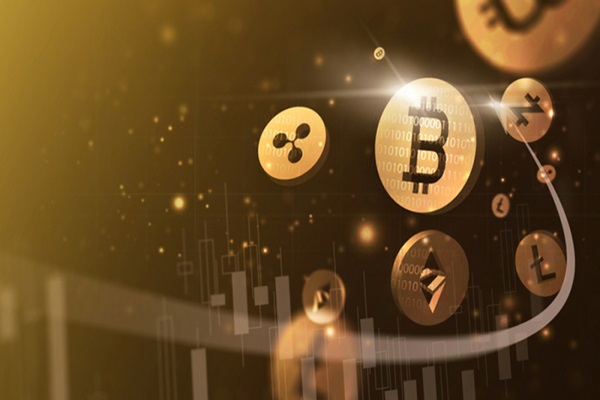In a rapidly evolving digital era, the financial landscape is undergoing a revolutionary transformation, and at the forefront of this change is the concept of Decentralized Finance, or DeFi. DeFi has emerged as a groundbreaking paradigm that reimagines traditional financial systems by leveraging blockchain technology to provide more open, accessible, and borderless financial services. At the heart of this movement lies the elimination of intermediaries, making financial transactions more direct and efficient. One platform that has been making waves in the crypto space is immediate-prime.com, an online trading platform that allows traders to focus on trading by cutting down the hard work. Start trading now!
Breaking Down DeFi: A Paradigm Shift
Unlike the traditional financial system that relies heavily on intermediaries like banks, DeFi operates in a trustless environment, where transactions are executed through smart contracts—self-executing code that operates autonomously. This eliminates the need for intermediaries and empowers individuals to have more control over their financial activities.
The Foundations of DeFi: Smart Contracts
Smart contracts are the cornerstone of DeFi. These self-executing programs automate, verify, and enforce the terms of agreements, ensuring that transactions occur without the need for intermediaries. By embedding trust and transparency into the code, smart contracts enable a wide range of financial activities, from lending and borrowing to trading and asset management.
Lending and Borrowing: Revolutionized
DeFi platforms have disrupted the lending and borrowing landscape by offering decentralized alternatives to traditional banks. Through DeFi protocols, individuals can lend their digital assets to others in exchange for interest, or borrow assets by providing collateral.
Decentralized Exchanges: Redefining Trading
Traditional centralized exchanges have long been the go-to platforms for trading various assets. However, DeFi has introduced decentralized exchanges (DEXs) that operate without intermediaries. DEXs enable peer-to-peer trading directly from users’ wallets, ensuring greater security and control over assets. By utilizing liquidity pools and automated market-making algorithms, DEXs offer seamless trading experiences while minimizing the risk of price manipulation.
Yield Farming and Liquidity Mining: Maximizing Returns
Yield farming and liquidity mining are innovative concepts that have gained prominence in the DeFi ecosystem. Yield farming involves lending out assets to earn high yields, often in the form of governance tokens. Liquidity mining, on the other hand, incentivizes users to provide liquidity to decentralized exchanges by offering rewards in the form of tokens. These mechanisms not only encourage participation in the DeFi ecosystem but also facilitate the efficient allocation of capital.
Challenges and Considerations in DeFi
While DeFi offers immense potential, it also comes with its fair share of challenges and considerations. The decentralized nature of DeFi platforms can sometimes lead to vulnerabilities in smart contracts, which malicious actors might exploit. Additionally, the lack of regulation and oversight raises concerns about the security of users‘ funds.
The Future of DeFi: Unlocking New Possibilities
As the DeFi landscape continues to evolve, its potential to reshape the financial industry becomes increasingly evident. DeFi projects are exploring new frontiers, including decentralized derivatives, prediction markets, and insurance protocols. These developments have the potential to create more inclusive and accessible financial systems on a global scale. With platforms spearheading the adoption of DeFi principles, users can expect innovative financial services that provide greater control and autonomy over their assets.
Conclusion
Decentralized Finance, or DeFi, stands as a beacon of innovation in the world of finance. By leveraging blockchain technology and smart contracts, DeFi platforms are dismantling traditional financial intermediaries and democratizing access to financial services. Through mechanisms such as lending and borrowing, decentralized exchanges, and yield farming, individuals can maximize their returns and actively participate in shaping the future of finance. As the DeFi ecosystem expands and matures, platforms exemplify the transformative power of decentralized finance, offering users a glimpse into a more efficient, accessible, and decentralized financial world. While challenges persist, the potential benefits of DeFi cannot be ignored, as it ushers in a new era of financial possibilities for individuals around the globe.
